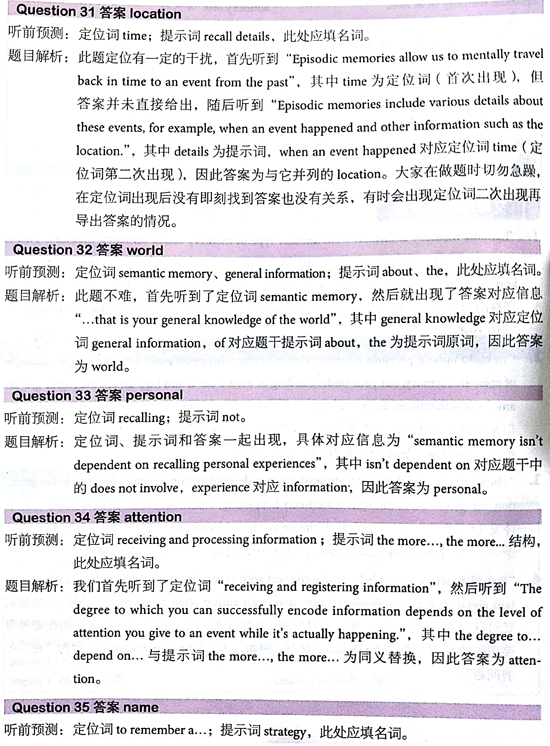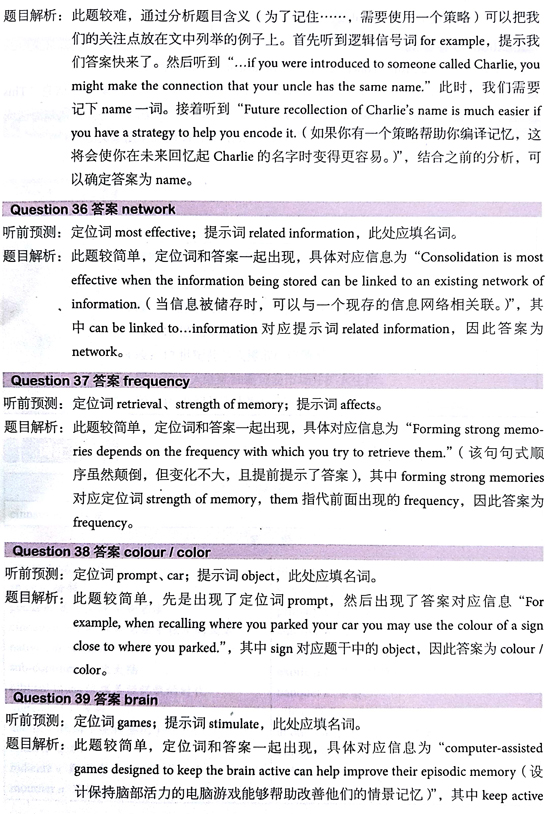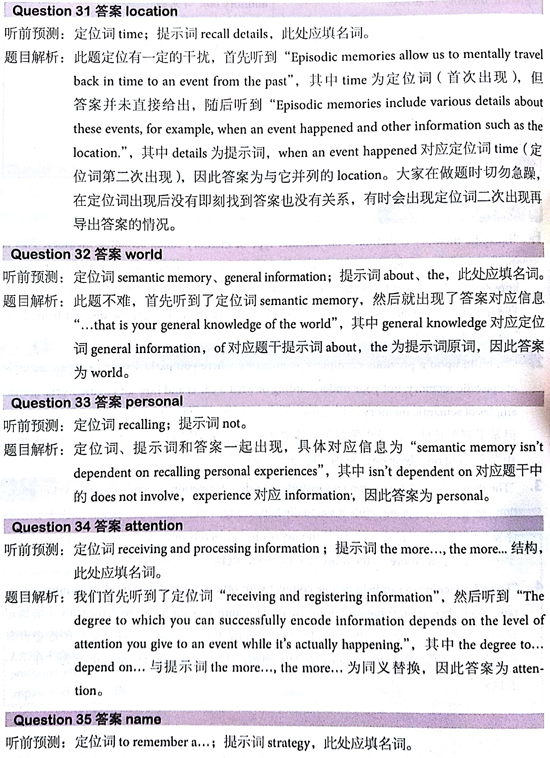剑桥雅思13Test2雅思听力Section4真题+答案+解析
剑桥雅思13Test2雅思听力Section4真题+答案+解析
剑桥雅思13Test2雅思听力Section4真题如下:
Questions 31-40
Complete the notes below.
Write ONE WORD ONLY for each answer.
|
Episodic memory ● the ability to recall details, e.g. the time and 31.................... of past events ● different to semantic memory - the ability to remember general information about the 32....................,which does not involve recalling 33.................... information
Forming episodic memories involves three steps: Encoding ● involves receiving and processing information ● the more 34.................... given to an event, the more successfully it can be encoded ● to remember a 35.................... ,it is useful to have a strategy for encoding such information
Consolidation ● how memories are strengthened and stored ● most effective when memories can be added to a 36....................of related information ● the 37.................... of retrieval affects the strength of memories
Retrieval ● memory retrieval often depends on using a prompt, e.g. the 38.................... of an object near to the place where you left your car
Episodic memory impairments ● these affect people with a wide range of medical conditions ● games which stimulate the 39.................... have been found to help people with schizophrenia ● children with autism may have difficulty forming episodic memories - possibly because their concept of the 4 0.................... may be absent ● memory training may help autistic children develop social skills |
谈话场景:讲座场景
人物关系:教授讲课
谈话话題:情景记忆
考题解析:




上海新航道专注雅思教育14年,每120分钟就有一位高分学员来自新航道,加入新航道,实现高分梦!










